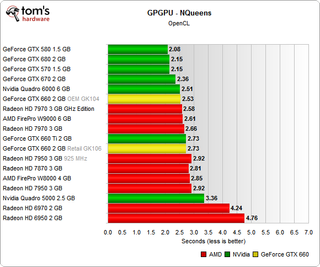

Heterogeneous computing can potentially offer significant performance and performance per watt improvements over homogeneous computing, but the question "what is the ideal mapping of algorithms to architectures?" remains an open one.

Therefore, we advocate even more integration in future heterogeneous CPU-FPGA systems (e.g., OpenCL 2.0 features, such as fine-grained shared virtual memory). We find that different partitioning strategies pose different tradeoffs (e.g., task partitioning enables more kernel duplication, while data partitioning has lower communication overhead and better load balance), but they generally outperform execution on conventional CPU-FPGA systems where no collaborative execution strategies are used. Third, we provide new insights that application developers can use when designing CPU-FPGA collaborative applications to choose between different partitioning strategies. We show that the general trend is that kernel duplication improves performance until the memory bandwidth saturates. Second, we study the impact of a common optimization technique, kernel duplication, in a collaborative CPU-FPGA context. We observe that choosing the most suitable partitioning strategy can improve performance by up to 2x. First, we compare various collaborative techniques (namely, data partitioning and task partitioning), and evaluate the tradeoffs between them. In this paper, we explore the potential of collaborative execution between CPUs and FPGAs using OpenCL High Level Synthesis. Such collaborative execution makes better use of the overall system resources by employing both CPU threads and FPGA concurrency, thereby achieving higher performance. However, tighter integration of the CPUs and the FPGAs enables the possibility of fine-grained collaborative execution, i.e., having both devices working concurrently on the same workload. In the traditional loosely-coupled accelerator mode, FPGAs work as offload accelerators, where an entire kernel runs on the FPGA while the CPU thread waits for the result.
OPENCL BENCHMARK UCSD SOFTWARE
At the same time, programmability is also improving with High Level Synthesis tools (e.g., OpenCL Software Development Kits), which allow programmers to express their designs with high-level programming languages, and avoid time-consuming and error-prone register-transfer level (RTL) programming. Heterogeneous CPU-FPGA systems are evolving towards tighter integration between CPUs and FPGAs for improved performance and energy efficiency. The experimental results show that the average logic utilization per instrument is 0.19 % of the ALUTs and 0.17 % of the registers in the FPGA when 50 instruments are inserted. The scalability of the framework is also evaluated by inserting up to 50 instruments. This resource utilization is between 1.5 and six times lower than those reported in the best previously published works. After testing on the reported benchmarks, the average logic overhead for one inserted instrument is 0.2 % of the total amount of adaptive look-up tables (ALUTs) and 0.1 % of the total registers in an FPGA. Our framework is implemented on an HPRHC platform that contains a CPU and two Arria10 FPGAs, and it is evaluated with a wide variety of benchmarks with different complexities.

The results clearly show that the chosen execution model for OpenCL-based designs strongly affects the timing performance when it is not properly implemented. This paper proposes an in-FPGA instrumentation method and a new framework for extracting the FPGA-cycle-accurate timing performances of OpenCL-based designs. The problem is compounded by the fact that the generated netlist details are disorganized, making them mostly unreadable and only partially visible to designers. However, the hardware produced by OpenCL compilers in field-programmable gate arrays (FPGAs) can result in severe performance bottlenecks that are challenging to solve. The productivity achieved when developing applications on high-performance reconfigurable heterogeneous computing (HPRHC) systems is increased by using the Open Computing Language (OpenCL).


 0 kommentar(er)
0 kommentar(er)
